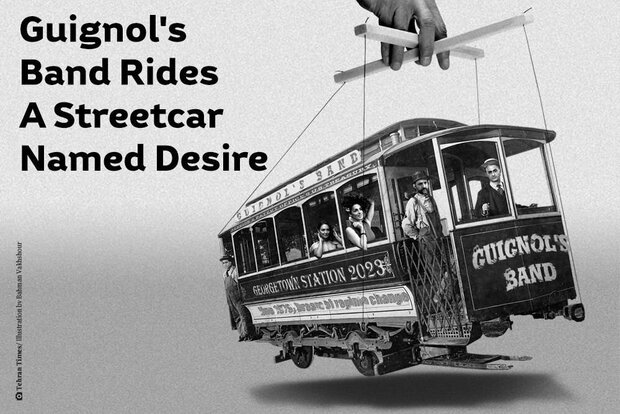In another charade, key figures of the Iranian opposition, including a holdover pampered Iranian prince, gathered at Georgetown University in Washington D.C. to create the false impression of unity among the cantankerous opposition.
The first thing that grabbed the attention was the participants' bloated feeling of importance. They sat beside each other as if millions of shackled Iranian plebs gagging for food and freedom are lining up at the gates waiting for a reveler prince to come to their rescue.
“This bus is free of charge! You don’t need to buy a ticket,” an overconfident Reza Pahlavi, son of the last imperial Iranian dictator, said. He was responding to a question on why representatives of Iran’s ethnic minorities were not invited to the event.
The prince, or the crown prince as some may argue, indicated that he was the driver – but without a driving license. That may be why the first one to hop off the bus was Abdullah Mohtadi, the head of the Kurdish Kumala Party, a group that pines for separatism and are neglected by Kurds. He recorded a video message for the controversial event but later said that he accepts no conditions from the wretched prince.
Pundits believe that the reason internal disputes went out of hand this quickly is the fact that all opposition leaders prioritize their personal interests over those of the Iranian people. This has been the case for 44 years. That’s why Pahlavi and his minions along with other detested opposition groups have failed at every turn to challenge the Islamic Republic, which enjoys the grassroots support of Iranians.
The latest display of support came a few hours after the Washington D.C. event, when an estimated 21 million participated in the 44th anniversary of the Islamic Revolution, an occasion the opposition worked their butt off to overshadow, only to miserably fail. According to observers, this level of turnout is explained by the fact that the Iranian people may have been grappling with some economic hardships but they know for sure that these hardships can be resolved. They know that the opposition is mainly driven by their own interests, not those of the people.
Then there is another factor. In recent years, key opposition figures have worked to prevent any sanctions relief for the Iranian people. Every time there were kind of negotiations and a chance for sanctions relief, the opposition became vocal in their opposition to sanctions removal. In a sense, they are not just opposition to the Islamic Republic, but also opposition to economic opening, which they see as a great danger to their political aspirations.
Also, being an oppositionist has proven lucrative for almost all the participants. Of course, an exception should be made here; Reza Pahlavi does not make profits from being an oppositionist. He already enjoys a huge household wealth inherited from his despotic ancestors who in turn became opulent overnight after ascending to the throne. Other oppositionists, however, rake in lump sums annually in the name of freedom.
By Faramarz Kuhpayeh
First published in Tehran Times

























Your Comment